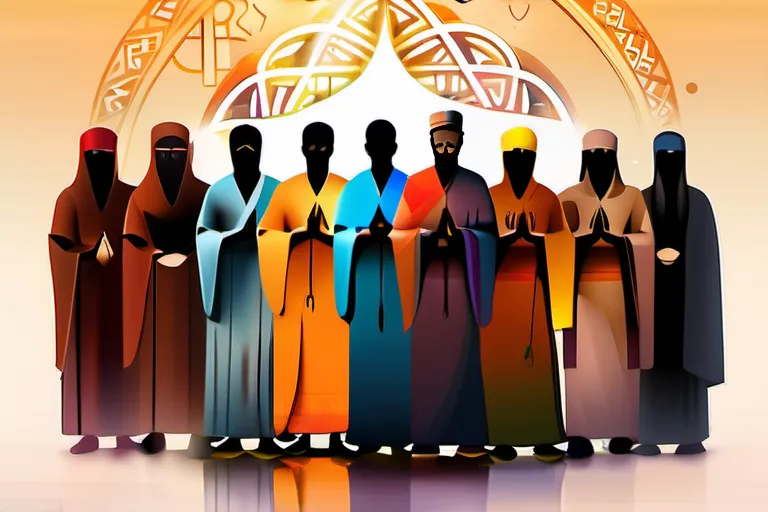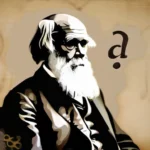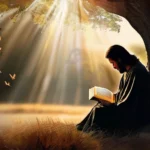Explore the philosophical, sociological, and historical aspects of defining the best religion.
In this article, we delve into the complex question of how to define the ‘best’ religion. We will examine various perspectives, from philosophical and ethical standpoints to sociological and historical considerations.
The Philosophical Perspective
How is the best religion defined? A question as old as humanity itself, yet still shrouded in mystery and debate. From a philosophical perspective, one must consider the profound ethical considerations that guide our search for truth. Is the best religion the one that aligns most closely with reason and logic? Or is it the one that offers the deepest ethical framework for guiding human behavior?
The journey into philosophy reveals a rich tapestry of thinkers who have pondered this question. Socrates, Plato, and Aristotle all contributed to the dialogue on ethics and rationality, laying down foundational stones in our quest to define what makes a religion the best. Their emphasis on reason as a guide for moral conduct provides a powerful lens through which we can view various belief systems.
Immanuel Kant, with his Categorical Imperative, challenges us to consider actions that could become universal laws. Could a religion’s principles pass this test? Could its teachings lead to a harmonious and fair society if everyone adhered to them?
Morally, the best religion must also address some of life’s most pressing questions: How should we treat each other? What is our responsibility towards the environment and future generations? These ethical considerations are not just philosophical musings; they have real-world implications that shape societies and individuals.
In this quest for the best religion, reason plays a crucial role. It allows us to critically evaluate beliefs without being swayed by tradition or popular opinion alone. Yet, reason must be balanced with compassion and empathy, as these virtues are essential in fostering a moral community.
Ultimately, defining the best religion from a philosophical perspective is an ongoing process of inquiry and reflection. It requires us to engage deeply with our values, beliefs, and the world around us. Each individual’s path towards finding the best may differ, but the pursuit itself enriches our understanding of what it means to be human.
The Sociological Perspective
How does one define the best religion when it’s all about community, tradition, and cultural identity? These sociological factors play a crucial role in shaping how people perceive and practice their faiths. Imagine each religion as a colorful tapestry, woven together by threads of shared beliefs and practices, but also intricately designed with unique patterns reflecting local cultures.
Community is the heart of many religious experiences. Think about it: wouldn’t you feel more connected to your faith if surrounded by like-minded individuals who share similar traditions? The sense of belonging that comes from communal worship and rituals can be deeply fulfilling, making certain religions stand out as the ‘best’ for some. Can we really separate the essence of a religion from its community aspect?
Traditions, too, are integral to understanding the best religion. They provide a historical continuity and give believers a sense of roots and heritage. Consider how the rituals and practices evolve over time; they can sometimes change dramatically, yet still be seen as core aspects of a faith. How do these changes affect our perception of which religion is ‘best’? Is it the one that has remained unchanged, or the one that has adapted beautifully while staying true to its original spirit?
Cultural identity plays another significant role. Religion often intertwines with national and ethnic identities, making certain practices deeply personal and meaningful. Would we consider a religion ‘best’ if it didn’t resonate strongly with the cultural values of a particular community? The way a religion fits into or shapes a culture is undeniably important in evaluating its worth.
So, when considering the best religion from a sociological standpoint, remember that these elements—community, tradition, and cultural identity—are all intertwined. They provide a rich context for understanding why certain religious practices and beliefs are deeply meaningful to people around the world. And just like a good story, each religion has its unique plot, characters, and setting, making it challenging to declare one as definitively ‘the best.’
The Historical Perspective
The historical perspective on defining the best religion is like tracing the threads of a complex tapestry, each thread representing different beliefs and practices that have evolved over millennia. Have you ever pondered how religions have shaped societies and cultures? From the ancient civilizations of Mesopotamia and Egypt to the monotheistic religions of Judaism, Christianity, and Islam, each belief system has left its indelible mark on history.
Consider the Renaissance as a pivotal moment in European history. The revival of interest in classical learning brought about a reevaluation of religious beliefs, leading to new interpretations and reforms within existing religions. This period was like a river splitting into numerous smaller streams, each exploring different paths towards understanding the divine.
In ancient India, Buddhism emerged as a response to the rituals and complexities of Hinduism, offering a more spiritual and philosophical approach. Similarly, Zoroastrianism in Persia challenged traditional religious practices with its dualistic worldview. These developments highlight how religions adapt and evolve over time to address societal needs and questions.
The Great Schism between the Eastern Orthodox and Roman Catholic Churches in the 11th century further illustrates the dynamic nature of religious definitions. This schism was like a powerful storm that split apart once-united beliefs, reshaping the landscape of Christianity and influencing future religious developments.
In more recent times, the Age of Enlightenment questioned many traditional religious beliefs, leading to secularization in some parts of the world. Today, we see a mix of traditional practices and new-age spiritualities coexisting, each contributing to our understanding of what constitutes the ‘best’ religion.
It’s clear that defining the best religion is not a static process but one that continuously evolves with time and context. As we look back at history, it becomes evident that every religion has its unique story, shaped by the societies in which they were born and the challenges they faced.
Ultimately, whether a religion can be considered ‘the best’ depends on individual perspectives and cultural contexts. It’s a journey of discovery and understanding, much like navigating through a vast library where each book offers a different insight into the human quest for meaning and purpose.
Religious Texts and Scriptures
When we delve into Religious Texts and Scriptures, it’s like peeling back layers of history to uncover the very heart of religious beliefs and practices. These texts, whether they be the Bible, the Koran, or the Talmud, serve as a compass for many adherents. But how do these sacred writings define what constitutes the best religion? Is it through the literal interpretations of ancient words, or does their deeper meaning and allegory play a crucial role?
Imagine each scripture as a map to a spiritual destination. Some readers navigate by the explicit directions laid out in these texts, following every command meticulously. Others see these writings more like metaphors for life’s journey, where the true path is found through understanding and application rather than strict adherence.
The interpretations of these texts can vary widely, leading to different understandings of religious truths. One community might emphasize the moral lessons and ethical teachings, while another focuses on the mystical or spiritual insights contained within. These differing perspectives shape not only individual beliefs but also broader societal norms and values.
Moreover, as societies evolve, so too do their interpretations of these texts. What was once seen as a literal commandment might now be understood in a metaphorical sense due to changes in social context or understanding. This ongoing reinterpretation is crucial for the relevance and applicability of religious teachings in today’s world.
So, when we ask how the best religion is defined through its texts, it becomes clear that there isn’t a single answer. It depends on the lens through which one views these writings—whether as historical documents, living traditions, or timeless guides for living. Each interpretation brings forth its own unique insights and values, contributing to the rich tapestry of human religious experience.
The Role of Experience
How does personal experience shape our understanding of what makes a religion ‘the best’? It’s like asking someone to describe their favorite meal – everyone has a different palate, and thus, a different definition. Have you ever encountered someone who found peace in meditation but struggled with another’s strict rules? Or perhaps you’ve met individuals who find solace in the community built around a particular faith yet are perplexed by its rigid doctrines?
Consider the journey of Sarah, an artist who found a profound sense of fulfillment through her spiritual exploration. She began with meditation, which opened her mind to new ways of thinking and created a sense of inner peace. Over time, she delved into various religious practices, each offering unique insights. However, it was the community built around Buddhism that truly resonated with her. The emphasis on compassion and mindfulness felt like home.
Meanwhile, Mike, a historian, found his personal definition of the best religion through academic study. He discovered how historical contexts often shaped religious beliefs and practices. His experience led him to appreciate religions not just for their spiritual teachings but also for their cultural contributions. For Mike, the best religion was one that seamlessly blended its spiritual teachings with a deep understanding of its history.
These anecdotes illustrate that defining the best religion is as personal as choosing the right pair of shoes – it fits perfectly when it resonates with an individual’s life experiences and values. What works for one person might not work for another, but both paths are valid in their own right. It’s a journey where personal experience becomes the ultimate guide.
So, next time you ponder over the best religion, consider your own journey. Are the teachings aligning with your life’s purpose? Do they bring you closer to finding meaning and purpose? These questions can help shape your unique perspective on what makes a religion truly valuable.
The Future of Religion
As we look towards the future, one cannot help but wonder how religion might evolve and what that could mean for defining the best religion. Will traditional practices remain dominant, or will new beliefs and practices emerge? Could technology play a role in shaping our spiritual lives?
Will the rise of digital spirituality change how we understand religious experiences?
In the years to come, virtual reality might offer immersive religious experiences that could transcend physical limitations. Imagine praying from your home or attending a virtual congregation where people from all over the world gather in a shared space. This shift could democratize access to various religious practices and beliefs, potentially broadening the spectrum of what defines a ‘best’ religion.
Moreover, as society becomes more diverse and interconnected, religions might merge or adopt new forms. Could this lead to a syncretic religion that incorporates elements from different traditions?
The future may also see increased emphasis on environmental stewardship within religious practices, reflecting the growing awareness of ecological issues. This could redefine the best religion as one that not only cares for its members but also protects the planet.
Will these changes make it harder to define a single ‘best’ religion? Or will they open up new possibilities for inclusivity and coexistence among different belief systems?
Conclusion
 Ultimately, the definition of the best religion is subjective and depends on individual beliefs and experiences. However, understanding the nuances of these definitions can help us appreciate the richness and diversity of religious traditions worldwide.
Ultimately, the definition of the best religion is subjective and depends on individual beliefs and experiences. However, understanding the nuances of these definitions can help us appreciate the richness and diversity of religious traditions worldwide.











